第21章 Chapter VI(3)
His face was white and cold, his jaw square and set; his coal-black eyes glittered with almost a superhuman fire. And his hair, darker than the wing of a crow, fell far below his shoulders; matted and tangled as it was, still it hung to his waist, and had it been combed out, must have reached his knees.
One long moment Wingenund stood facing his foe, and then over the multitude and through the valley rolled his sonorous voice:
"Deathwind dies at dawn!"
The hunter was tied to a tree and left in view of the Indian populace. The children ran fearfully by; the braves gazed long at the great foe of their race; the warriors passed in gloomy silence. The savages' tricks of torture, all their diabolical ingenuity of inflicting pain was suppressed, awaiting the hour of sunrise when this hated Long Knife was to die.
Only one person offered an insult to the prisoner; he was a man of his own color. Jim Girty stopped before him, his yellowish eyes lighted by a tigerish glare, his lips curled in a snarl, and from between them issuing the odor of the fir traders' vile rum.
"You'll soon be feed fer the buzzards," he croaked, in his hoarse voice. He had so often strewed the plains with human flesh for the carrion birds that the thought had a deep fascination for him. "D'ye hear, scalp-hunter? Feed for buzzards!" He deliberately spat in the hunter's face. "D'ye hear?" he repeated.
There was no answer save that which glittered in the hunter's eye. But the renegade could not read it because he did not meet that flaming glance. Wild horses could not have dragged him to face this man had he been free. Even now a chill crept over Girty. For a moment he was enthralled by a mysterious fear, half paralyzed by a foreshadowing of what would be this hunter's vengeance.
Then he shook off his craven fear. He was free; the hunter's doom was sure.
His sharp face was again wreathed in a savage leer, and he spat once more on the prisoner.
His fierce impetuosity took him a step too far. The hunter's arms and waist were fastened, but his feet were free. His powerful leg was raised suddenly; his foot struck Girty in the pit of the stomach. The renegade dropped limp and gasping. The braves carried him away, his gaudy feathers trailing, his long arms hanging inertly, and his face distorted with agony.
The maidens of the tribe, however, showed for the prisoner an interest that had in it something of veiled sympathy. Indian girls were always fascinated by white men. Many records of Indian maidens' kindness, of love, of heroism for white prisoners brighten the dark pages of frontier history. These girls walked past the hunter, averting their eyes when within his range of vision, but stealing many a sidelong glance at his impressive face and noble proportions. One of them, particularly, attracted the hunter's eye.
This was because, as she came by with her companions, while they all turned away, she looked at him with her soft, dark eyes. She was a young girl, whose delicate beauty bloomed fresh and sweet as that of a wild rose. Her costume, fringed, beaded, and exquisitely wrought with fanciful design, betrayed her rank, she was Wingenund's daughter. The hunter had seen her when she was a child, and he recognized her now. He knew that the beauty of Aola, of Whispering Winds Among the Leaves, had been sung from the Ohio to the Great Lakes.
Often she passed him that afternoon. At sunset, as the braves untied him and led him away, he once more caught the full, intense gaze of her lovely eyes.
That night as he lay securely bound in the corner of a lodge, and the long hours wore slowly away, he strained at his stout bonds, and in his mind revolved different plans of escape. It was not in this man's nature to despair; while he had life he would fight. From time to time he expanded his muscles, striving to loosen the wet buckskin thongs.
The dark hours slowly passed, no sound coming to him save the distant bark of a dog and the monotonous tread of his guard; a dim grayness pervaded the lodge. Dawn was close at hand--his hour was nearly come.
Suddenly his hearing, trained to a most acute sensibility, caught a faint sound, almost inaudible. It came from without on the other side of the lodge.
There it was again, a slight tearing sound, such as is caused by a knife when it cuts through soft material.
Some one was slitting the wall of the lodge.
The hunter rolled noiselessly over and over until he lay against the skins.
In the dim grayness he saw a bright blade moving carefully upward through the deer-hide. Then a long knife was pushed into the opening; a small, brown hand grasped the hilt. Another little hand followed and felt of the wall and floor, reaching out with groping fingers.
The, hunter rolled again so that his back was against the wall and his wrists in front of the opening. He felt the little hand on his arm; then it slipped down to his wrists. The contact of cold steel set a tremor of joy through his heart. The pressure of his bonds relaxed, ceased; his arms were free. He turned to find the long-bladed knife on the ground. The little hands were gone.
In a tinkling he rose unbound, armed, desperate. In another second an Indian warrior lay upon the ground in his death-throes, while a fleeing form vanished in the gray morning mist.